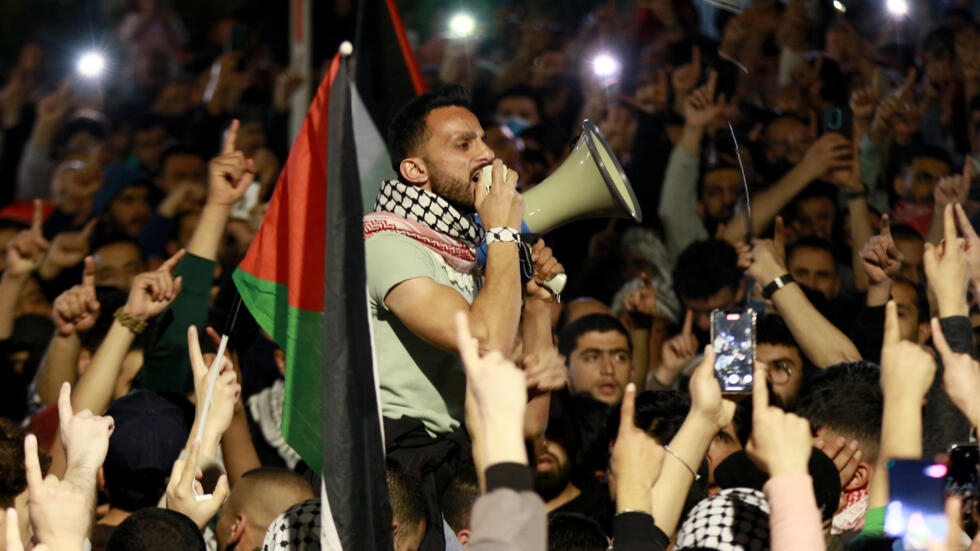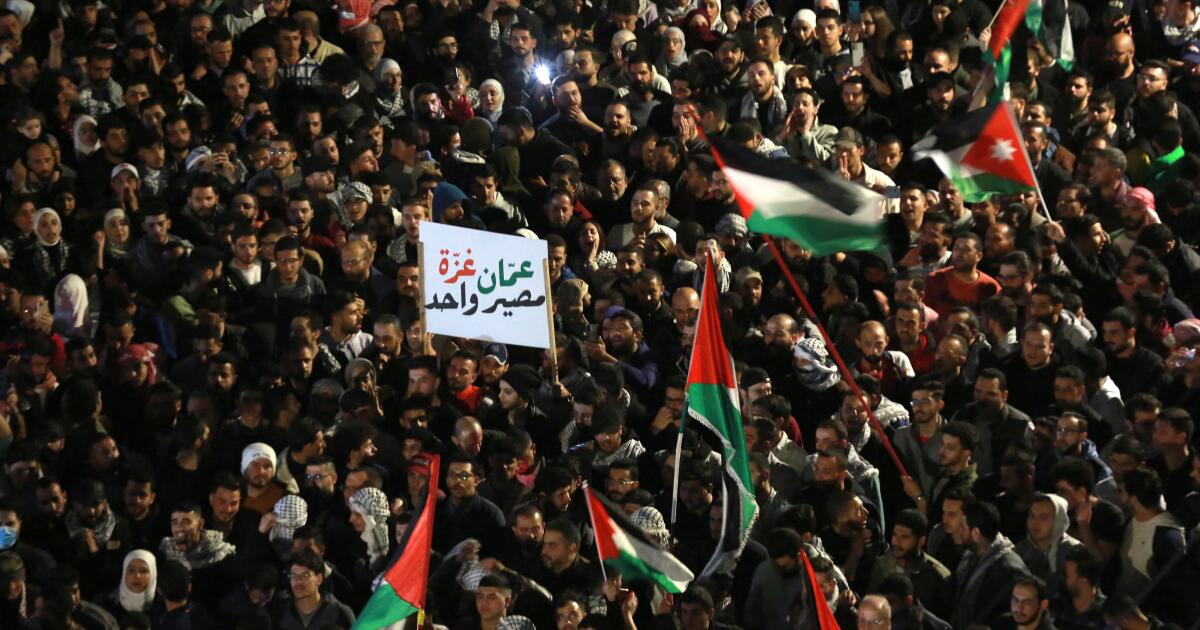In Jordan’s capital, nightly protests against the country’s peace deal with Israel have become routine, drawing thousands including 35-year-old Anas Nayef and his friends. These demonstrations demand an end to the 30-year-old peace agreement and the normalization of relations with Israel. The sentiment is fueled by anger over Israel’s actions in Gaza and resonates deeply in Jordan, where Palestinians form a significant part of the population.
The peace deal with Israel, signed in 1994, has long been unpopular in Jordan, despite maintaining peace and enabling economic cooperation. However, recent events, including the war in Gaza, have strained this relationship. The departure of the Israeli ambassador and Jordan’s recall of its envoy reflects the escalating tensions. Additionally, Jordan’s withdrawal from a water-for-energy deal with the UAE signals a shift in policy due to Israeli actions in Gaza.

Jordanians Protest Every Night Against Israel Peace Deal Because They’re Mad About Gaza War (Credits: France 24)
Jordan’s royal family has also taken a stance against Israel, with Queen Rania accusing it of genocide and King Abdullah II criticizing Western double standards. Jordan has engaged in humanitarian efforts for Gaza, including aid drops, though these actions have not pacified protesters. The ongoing demonstrations, which intensified since March, demand the closure of the Israeli Embassy and reject normalization with Israel.
Critics accuse the Jordanian government of facilitating trade between the UAE and Israel and cooperating with American military presence. The protests have also raised concerns about potential ties to groups like the Muslim Brotherhood or Iran. Despite these suspicions, protesters assert their support for the Palestinian cause in various forms of resistance, including Hamas, without necessarily aligning with specific groups.
For demonstrators like Widad Daanah and Rand Khattari, the protests serve as a message to Israel that public sentiment against normalization persists, regardless of government actions. While some fear the protests could destabilize the government, others see them as a necessary expression of solidarity with Palestine. The demonstrations reflect a complex mix of grievances, including opposition to the peace deal, frustration with government policies, and unwavering support for Palestinian rights.























